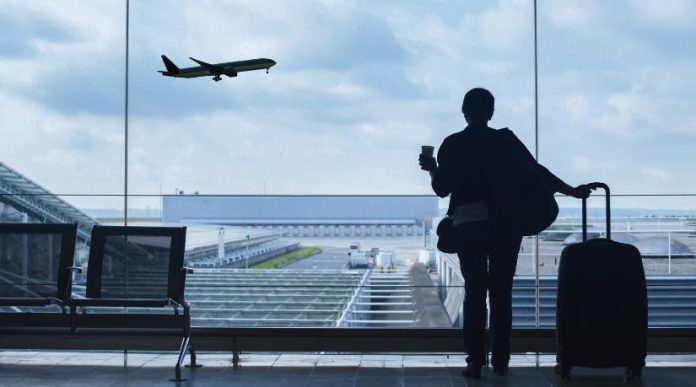In the modern age, air travel is indispensable, establishing connections between individuals and locales all around the world. Nonetheless, the journey is not always without hitches, and disruptions like delays, cancellations, and overbooking can disrupt travel schedules. This is the situation where flight compensation companies become essential, assisting passengers in securing compensation for their interrupted flights.
Yet, their role extends far beyond merely aiding passengers in claiming funds. Many flight compensation companies are increasingly focusing on giving back to society and positively contributing to aviation communities. This article will delve deeper into the various ways that flight compensation companies contribute to societal development and make a positive impact.
How Flight Compensation Companies Give Back?
Corporate Social Responsibility: The Role of Companies in Society
Corporate Social Responsibility (CSR) is a business framework that empowers a company to be socially accountable to itself, its stakeholders, and the general public. By practicing CSR, a company ensures that it is contributing positively to society and the environment.
 Flight compensation companies, as part of the broader aviation industry, also have a role to play in contributing to society. Many flight compensation companies undertake various CSR initiatives such as supporting local communities, investing in sustainable technologies, and offering scholarships and training programs. The best flight compensation company is often one that not only helps passengers claim compensation but also contributes positively to society and the aviation industry.
Flight compensation companies, as part of the broader aviation industry, also have a role to play in contributing to society. Many flight compensation companies undertake various CSR initiatives such as supporting local communities, investing in sustainable technologies, and offering scholarships and training programs. The best flight compensation company is often one that not only helps passengers claim compensation but also contributes positively to society and the aviation industry.
Supporting Aviation Communities: Initiatives and Partnerships
Aviation communities around the world play a crucial role in the global economy and are a hub of employment and economic activity. These communities encompass a wide range of professionals, from pilots and cabin crew to ground staff and air traffic controllers, all of whom contribute to the smooth functioning of the global aviation network. Additionally, airports and related businesses stimulate local economies by attracting tourism and facilitating international trade. Flight compensation companies often support these communities through various initiatives and partnerships.
For instance, they might partner with local enterprises, sponsor activities, or contribute to community development initiatives. Such partnerships may involve collaborating with local businesses to provide services or sponsoring events that bring people together and promote local culture. Additionally, flight compensation companies may contribute financially or in-kind to community development initiatives, such as infrastructure projects, educational programs, or local charities. Supporting aviation communities is not just a method for flight compensation companies to give back, but it also aids in constructing a robust and sustainable aviation sector.
Environmental Conservation: Flight Compensation Companies and Sustainability
The aviation industry has a significant environmental impact, contributing to carbon emissions and noise pollution. Flight compensation companies often take initiatives to offset their carbon footprint and contribute towards environmental conservation.
 For example, they may invest in carbon offset projects, support the development of sustainable aviation fuels, or participate in tree planting initiatives. By taking such actions, flight compensation companies contribute towards creating a more sustainable and environmentally friendly aviation industry.
For example, they may invest in carbon offset projects, support the development of sustainable aviation fuels, or participate in tree planting initiatives. By taking such actions, flight compensation companies contribute towards creating a more sustainable and environmentally friendly aviation industry.
Education and Empowerment: Scholarships and Training Programs
Education is a key driver of societal development, and flight compensation companies often support education and empowerment through scholarships and training programs. These programs may be targeted toward underprivileged communities or aimed at developing skills that are essential for the aviation industry. By investing in education and empowerment, flight compensation companies contribute towards creating a more skilled and inclusive workforce.
Making a Lasting Impact: Stories of Positive Change from Flight Compensation Companies
Many flight compensation companies have greatly impacted society and the aviation industry through their initiatives.
 Some examples of positive change brought about by flight compensation companies include:
Some examples of positive change brought about by flight compensation companies include:
- Supporting local businesses and communities during the COVID-19 pandemic
- Investing in sustainable technologies that reduce the environmental impact of air travel
- Offering scholarships and training programs to underprivileged communities
By undertaking such initiatives, flight compensation companies contribute towards creating a more inclusive, sustainable, and resilient aviation industry.
In conclusion
Flight compensation companies play a vital role in supporting passengers to claim compensation for disrupted flights. However, their role extends beyond merely helping passengers claim funds. Many flight compensation companies undertake various initiatives to support the aviation communities, contribute towards environmental conservation, support education and empowerment, and ultimately make a lasting impact on society and the aviation industry. It is crucial to recognize and support the efforts of flight compensation companies in making a positive impact on the world.
As passengers and key players in the aviation field, it is essential to opt for and support flight compensation companies devoted to making a positive difference. By doing this, we can help in shaping a more sustainable and inclusive aviation sector and a better tomorrow for all.





































